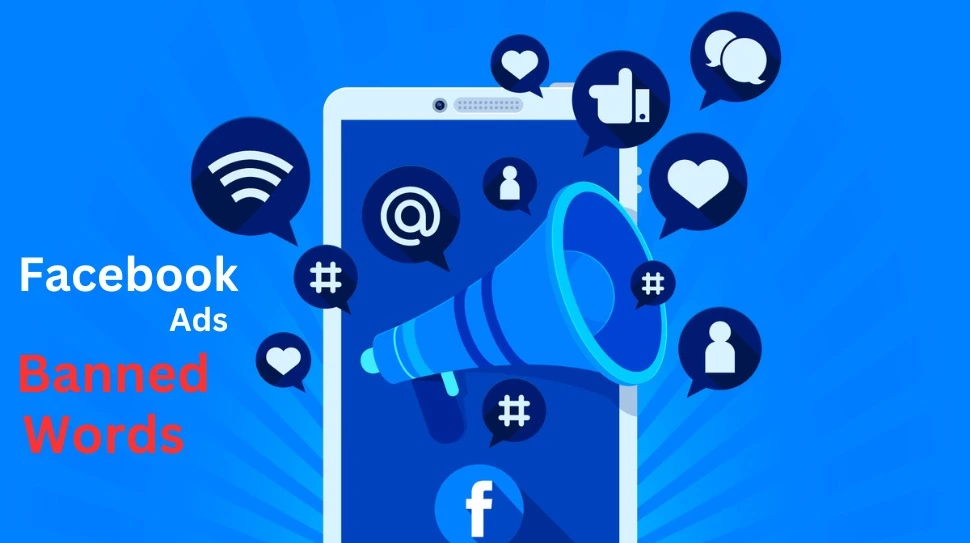Social Media
The Ultimate Guide to Facebook Ads Banned Words: What You Need to Know
In the world of digital marketing, Facebook Ads is a powerful tool for reaching millions of potential customers. However, navigating the platform’s advertising policies can be tricky, especially when it comes to the words you use in your ads. Facebook has a strict policy on banned words, which, if violated, can lead to your ads being disapproved or even your account being suspended. In this blog, we will dive deep into what banned words are, why Facebook restricts them, and provide some useful tips on how to create compliant and effective ads.
Understanding Facebook’s Ad Policies
Before we explore the specifics of banned words, it's essential to understand Facebook's overarching ad policies. Facebook aims to create a positive experience for its users, and its ad policies are designed to prevent misleading, offensive, or harmful content from appearing in users' feeds. These policies cover various aspects, including prohibited content, restricted content, and misleading claims.
Among these policies is the list of banned words, which advertisers must avoid to ensure their ads are compliant with Facebook's guidelines.
What Are Facebook Ads Banned Words?
Banned words are specific terms or phrases that Facebook prohibits in ads due to their potential to mislead, offend, or harm users. We can categorize these terms into multiple groups:
- Misleading or Deceptive Words:Words that exaggerate or promise unrealistic outcomes.
Examples: “guaranteed,” “get rich quick,” “instant results.”
- Sensitive Content:Words that reference sensitive or controversial topics such as religion, politics, or personal attributes.
Examples: “weight loss,” “miracle,” “cure.”
- Personal Attributes:Words that mention or imply characteristics like race, ethnicity, gender, age, or sexual orientation.
Examples: “Are you over 50?” “Looking for a boyfriend?”
- Clickbait Phrases:Words that are designed to entice clicks by using sensational or exaggerated claims.
Examples: “You won’t believe this,” “Click here now!”
- Sexual Content:Words or phrases that contain explicit or suggestive content.
Examples: “sexy,” “nude,” “hot singles.”
- Violence and Shocking Content:Words that promote or depict violence, gore, or shocking material.
Examples: “kill,” “blood,” “brutal.”
- Health Claims:Words that make unverified or exaggerated health claims.
Examples: “cure cancer,” “lose 10 KG in a week,” “detox.”
- Financial Promises:Words that suggest unrealistic financial gains.
Examples: “Make RS.1,000 a day,” “Get rich fast.”
Why Does Facebook Ban These Words?
Facebook’s primary goal is to protect its user base from content that could be harmful, offensive, or misleading. The platform's algorithms are designed to ensure that ads are relevant, respectful, and provide a positive experience. Banned words often fall into categories that could lead to negative user experiences or violate community standards.
For example, using personal attributes in ads can make users feel targeted or discriminated against, leading to a negative perception of both the ad and the advertiser. Similarly, exaggerated claims or clickbait phrases can damage trust in the platform and the advertisers using it.
How to Avoid Using Banned Words in Facebook Ads Creating Facebook ads that comply with the platform’s guidelines can be challenging, but it’s essential for running successful campaigns. Here are some practical tips to help you avoid using banned words-
- Understand Facebook’s Ad Policies:Familiarize yourself with Facebook’s advertising policies to know what is and isn’t allowed. Regularly review updates to these policies as they can change over time.
- Use Clear and Honest Language:Avoid making exaggerated claims or promises in your ads. Instead, focus on providing clear, honest, and valuable information that resonates with your audience.
- Avoid Mentioning Personal Attributes:When targeting specific demographics, avoid directly referencing personal attributes like age, gender, or race. Instead, focus on interests, behaviors, or needs that are relevant to your audience.
- Steer Clear of Clickbait:Avoid using sensational language designed to entice clicks. Your ad should be compelling without resorting to tricks or exaggerations.
- Be Cautious with Health and Financial Claims:If your ad involves health or financial products, ensure that any claims are supported by evidence and do not promise unrealistic results.
- Test and Review Your Ads:Before launching your ads, review them for any potentially problematic language. Use A/B testing to see which versions of your ads perform best while remaining compliant with Facebook’s policies.
- Consider Facebook’s Ad Approval Process:Facebook uses a combination of automated systems and human reviewers to approve ads. If your ad is flagged, it will be reviewed by a human, so ensure that your content is clear and compliant.
"When you start with a dream and work with passion, success is inevitable."
Ratan Tata
How to Handle a Rejected Ad
Despite your best efforts, there may be times when your ad gets rejected. If this happens, don’t panic. Here’s what you can do:
- Review the Rejection Notice:
Facebook will provide a reason for the rejection. Carefully review the notice to understand which policy your ad violated.
- Edit Your Ad:
Make the required adjustments to your advertisement in order to abide by Facebook's guidelines. Remove any banned words and ensure that your language is clear and compliant.
- Appeal the Decision:
If you believe that your ad was mistakenly rejected, you can appeal the decision. Facebook allows you to request a review, and a human reviewer will take a closer look at your ad.
- Learn from the Experience:
Use the rejection as a learning opportunity. Recognize the mistakes made and take steps to prevent them from happening again.In the future.
- Final Thoughts and Suggestions:Understanding Facebook’s banned words policy is crucial for any advertiser looking to run successful campaigns on the platform. By avoiding misleading, offensive, or sensational language, you can create ads that not only comply with Facebook’s guidelines but also resonate with your audience.
- Suggestions for Advertisers:
- Stay Updated: Facebook’s policies are constantly evolving. Stay informed about any changes to ensure your ads remain compliant.
- Use Positive Language: Focus on positive and empowering language that adds value to your audience.
- Experiment and Test: Regularly test different ad variations to see what works best while staying within Facebook’s guidelines.
- Seek Expert Help: If you’re unsure about creating compliant ads, consider consulting with a digital marketing expert or agency that specializes in Facebook Ads.
By following these tips and keeping Facebook’s ad policies in mind, you can create effective, compliant, and engaging ads that drive results for your business.
Conclusion:
Navigating Facebook's ad policies can be challenging, but understanding the importance of banned words is a critical step toward creating successful campaigns. By avoiding these words and focusing on clear, honest, and compliant language, you can ensure that your ads not only meet Facebook’s standards but also effectively reach and resonate with your target audience. Happy advertising!
Arshad Momin
"A mind that is open to new things, a heart full of passion, and a spirit of creativity can conquer any challenge."







